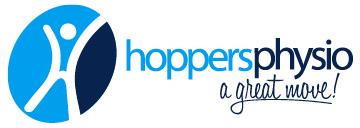What is Femoroacetabular Impingement (FAI)?
What is Femoroacetabular Impingement (FAI)?
Hip pain is widespread across all age groups throughout life, whether an elite athlete or someone in the general population. Many conditions may cause hip pain, such as femoroacetabular impingement (also known as FAI for short).
What is it?
This is a condition where the ball and socket part of the hip joint cannot move around through range. This is due to the way the head of your femur (thigh bone) moves around the socket of your pelvis. Pain for those with FAI can usually be felt at the front of the hip/groin area and is generally regarded as quite deep, rather than on the top where you can feel your muscles. It often feels like a sharp pain with specific movements or can otherwise be regarded as a stiff, consistent ache.
Pain may also be present in the back or buttock area, depending on impingement.
What activities are usually painful?
Activities that usually provoke FAI pain are:
- Deep squatting.
- Getting up and down from a low chair.
- Changing walking/running directions and getting in and out of a car.
FAI is commonly seen in young athletes such as football and soccer players as they both involve explosive movement and changes in direction at the hip joint. Due to the extra stress on the bones, as they are growing/developing, sometimes, extra bone can be found in these areas in response. FAI pain can also be found with jobs requiring lots of sitting, I.e., truck driver or admin worker.
How Does Physiotherapy help FAI?
A physiotherapist will take a thorough history regarding your activity and pain levels. They will then conduct an assessment based on your symptoms and rule out pain coming from other areas such as your lower back or other structures around your hips such as the muscles or ligaments.
Physiotherapy treatment often focuses on activity modification, exercise therapy and return to sport/activity readiness.
If you are experiencing any of the symptoms mentioned above and would like an assessment, please contact our friendly staff at (03) 9749 5110 to book an appointment with one of our Physiotherapists who can help you achieve your goals.

